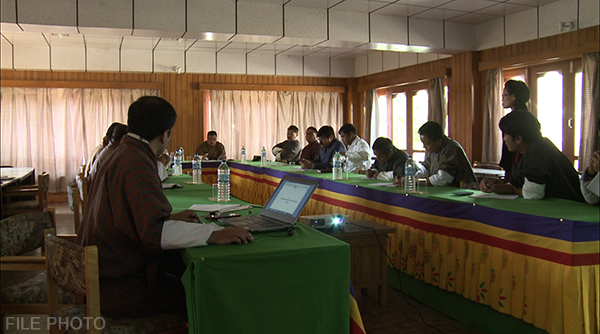 The draft power tariff policy that went through a successful meeting between the private sector and task force members from the hydropower sector could mean changes in the economy, but to what extent, remains to be seen once the policy is adopted.
The draft power tariff policy that went through a successful meeting between the private sector and task force members from the hydropower sector could mean changes in the economy, but to what extent, remains to be seen once the policy is adopted.
There are also others who feel, it will not have any far-reaching implications on the economy. Some had argued it was untimely and a case of putting the cart before the horse, with the policy being formulated even as there was already an electricity act that was approved by the parliament in 2002.
One of the recommendations from the private sector was on the need to move away from the present tariff determining system. Today, electricity tariff to be sold to industries and household is calculated using the cost plus model.
The private sector had earlier said the model did not work in favor of the industries as it was too taxing since all the cost of distributing electricity was passed down to the consumers.
However, the private sector did not have any solid studies to convince the government in moving from a cost plus model to a price cap method. Using the price cap method would require extensive studies and hiring of consultants from abroad.
“There is no clear basis on changing the model,” Economic Affairs secretary Dasho Yeshi Wangdi said. However, the policy provides leeway to the government to make changes in the tariff determination regulation that specifies cost plus model.
Dasho Yeshi Wangdi said, the policy was drafted, and recommendations incorporated in a way, to ensure adequate power supply, quality services and proper guidelines.
“The policy should be unbiased to all customer category.”
It was also meant to ensure, tariff rates charged to industries were competitive in the regional market. General Secretary of the Association of Bhutanese Industries Jochu Thinley said if the policy ensured domestic tariff to be lower than export rates, they would be satisfied.
Industrialists during their own consultation meeting raised the issue that the rates that high voltage industries paid for electricity within the country was higher than export rates.
However, even though the draft power tariff policy had numerous statements concerning low voltage users, there were no representations from households during the consultation meeting.
Section 7.9 of the draft policy states; “for investments made as per national plans but not utilised on account of reasons beyond the control of the utilities, the cost shall be spread out across all customer categories.”
This means, all customer categories, including households, would have to bear the cost of investments that went bad.
Dasho Yeshey Wangdi said, since the policy is still in consultation phase, any one could comment and provide feedback, which would be looked into by the taskforce.
The private sector also flagged other recommendations including the need for an Industrial Development Policy that would provide broad policy roadmap to the industries.
The policy document will now be submitted to the Gross National Happiness Commission and will be put through the screening test to ensure it was in line with GNH development philosophy.
The Bhutan Chamber of Commerce and Industry is expecting the policy to be approved by this year-end, with the next tariff revision scheduled in July 2017.
Next week, the private sector will be meeting with various stakeholders from Economic Affairs Ministry and the Bhutan Electricity Authority to discuss if there was a need to amend the 2002 Electricity Act.









